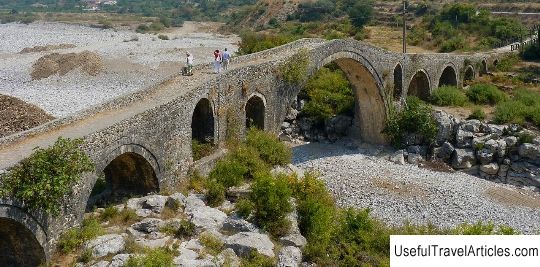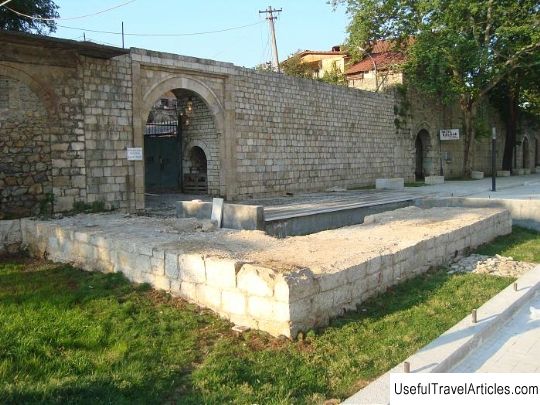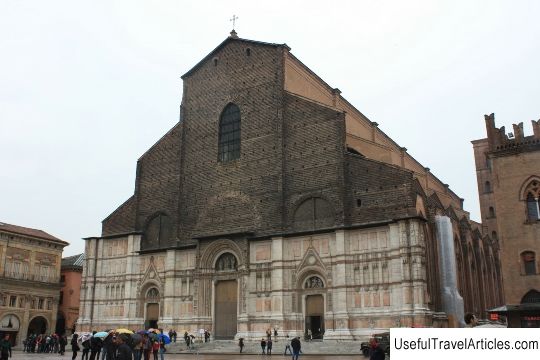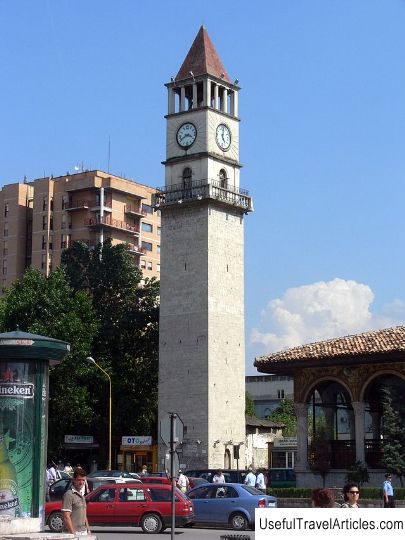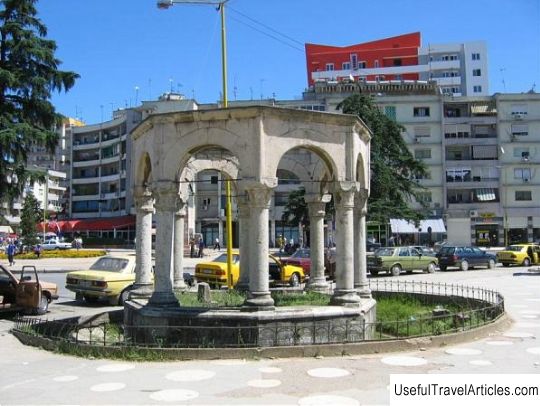Tabak-bridge (Ura e Tabakeve) description and photos - Albania: Tirana
Rating: 7,5/10 (6225 votes) 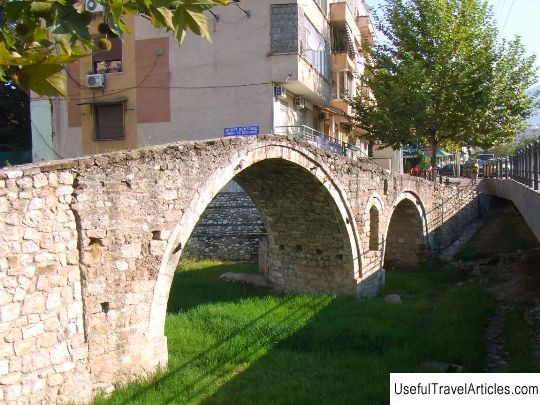
Tobacco-bridge (Ura e Tabakeve) description and photos - Albania: Tirana. Detailed information about the attraction. Description, photographs and a map showing the nearest significant objects. The title in English is Ura e Tabakeve. Photo and descriptionThe Tobacco Bridge (or the Bridge of Tanners) was built in Tirana in the 17th-18th centuries and is a cultural monument. The bridge got this name because of the special position of the leatherworkers' guild in the economic and social life of Tirana at that time. The bridge, about 7.5 meters high, is made of stone, forms arches and is paved with cobblestones. & nbsp; It is distinguished by its harmonious architecture, as well as the proportional distribution of all structural elements. The bridge consists of a bow-shaped main arch with a maximum clearance of 8 meters, as well as two side arches with a base thickness of 1 meter. The maximum rise in the water level for which the bridge is designed is 3.5 meters. The sidewalk of the overpass is 2.5 meters wide, laid out of river stone, placed randomly. In 1614, Tirana saw a rapid growth in industry and trade. The favorable geographical position at the intersection of important trade routes attracted new citizens to Tirana, who increased the city's population year after year. Along one of the important roads for driving cattle from the mountains to the plains, tanners settled, whose activity was called "tabakane". Accordingly, built in the 18th century by necessity, a stone bridge across the Lana River was named "Tabak-bridge". The bridge was used for its intended purpose until the 30s, until the riverbed changed direction. The tobacco bridge is a perfectly preserved example of ancient architecture of Albania.  We also recommend reading Filippovskaya Pustyn description and photos - Russia - North-West: Solovetsky Islands Topic: Tabak-bridge (Ura e Tabakeve) description and photos - Albania: Tirana. |
